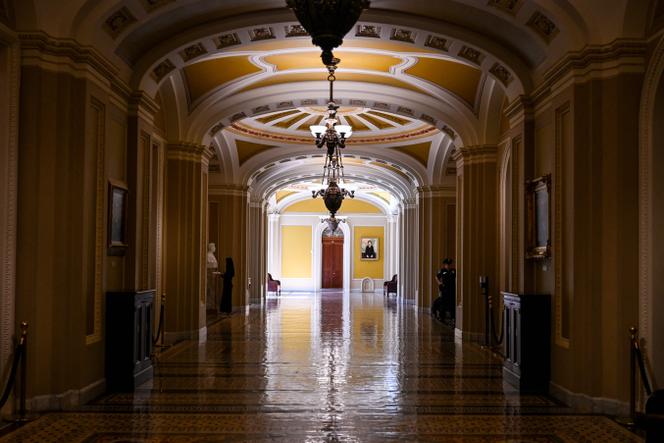


Trump administration officials and top Republicans warned on Sunday, October 5, that Americans will increasingly feel the pain of an ongoing US government shutdown as most federal operations remained shuttered.
With Democrats refusing to give in over their demands for continued government health care subsidies in the budget, the White House says plans are being finalized for the firing of thousands of federal workers.
Shutdowns are a periodic feature of gridlocked Washington when the two parties cannot agree on budget priorities. All non-essential workers are temporarily furloughed, or left without pay, while the parties work out their differences. This time, the stakes are higher, with President Donald Trump telling reporters on Sunday that the administration had already started to permanently fire − not merely furlough − government employees.
"It's taking place right now. It's all because of the Democrats. The Democrats are causing the loss of a lot of jobs," Trump said, blaming his rivals as he has done since the start of the impasse.
The shutdown, now on its fifth day, has shown no signs of ending, with a top Democrat saying there had been no talks between congressional leaders since Monday. Kevin Hassett, who directs the White House's National Economic Council, told CNN that there was hope for progress in talks in the coming week.
Trump himself sounded resigned to the shutdown dragging on.
Talks will center on addressing expiring Obamacare health subsidies. The Senate's Republican majority leader acknowledged the two sides were currently "at a stalemate." "It's going to get uncomfortable," Senator John Thune told the Fox News show Sunday Morning Futures, adding that some behind-the-scenes discussions were addressing the potential extension of subsidies for Obamacare.
How long could the shutdown last? "Just as long as the Democrats want it to," Thune said.
But Republicans control the levers of power in Washington, and Democrats have laid the failure to keep the lights on squarely at the feet of Trump's party. The minority Democrats seek to force Republicans to address the health care subsidies issue by blocking a Trump-backed temporary funding resolution that needs a handful of their votes.
In March, when the threat of a shutdown last loomed, Democrats blinked first, voting for a six-month Republican resolution to keep the coffers stacked despite policy misgivings.
Now, Democrats are demanding negotiations.
"If Republicans continue to refuse to extend the Affordable Care Act [Obamacare] tax credits, tens of millions of American taxpayers are going to experience dramatically increased premiums, co-pays and deductibles," House Minority Leader Hakeem Jeffries said on NBC's Meet the Press.
Shutdown concerns run across party lines, according to a CBS News poll released Sunday. It showed just 28% of Americans support congressional Republicans' handling of the crisis, while congressional Democrats received 27% support.
The shutdown's effect on the economy is rattling Americans, with 49% of respondents saying they were very concerned and 31% somewhat concerned, compared to just 20% saying they are not concerned.
The country's last government shutdown, which began in December 2018, occurred during Trump's first presidential term and lasted a record 35 days, which the non-partisan Congressional Budget Office estimated cost the US economy about $11 billion.
